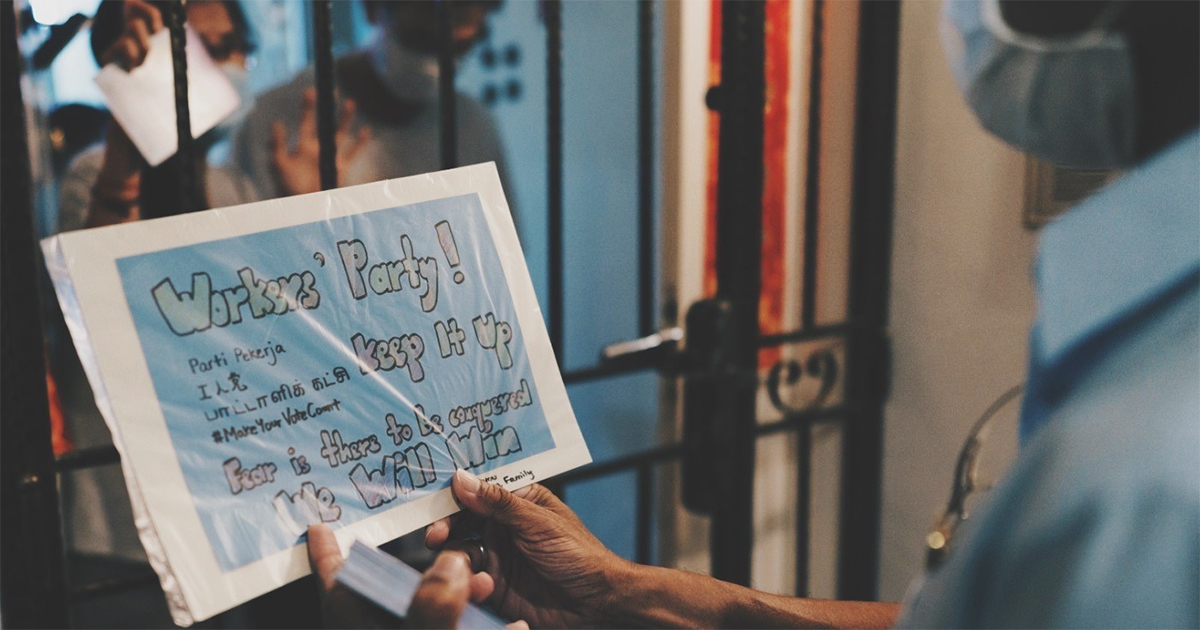The Institute of Policy Studies (IPS) shared the results of a survey it had conducted after the July 10 general election in Singapore.
The survey results were released on Oct. 1, 2020 -- close to three months after Polling Day on July 10.
A sample of 4,027 voting-age Singaporeans were polled.
PAP's perceived credibility falls
The proportion of respondents who saw the ruling People's Action Party as the most credible political party fell from 93 per cent in the GE2015 to 86 per cent in GE2020.
Those who said they merely agreed with the statement that the PAP is credible dropped from 63 per cent in 2015, to 57 per cent in 2020
This level is similar to what was achieved before GE2015.
The percentage who strongly agreed that the PAP is credible was similar to 2015.
Perceived credibility fell across all age groups
The PAP's perceived credibility fell across all age groups.
The drop in positive ratings was sharper among
- those with secondary and diploma education,
- the lower-income,
- those living in one- to three-room HDB flats, and
- men
Workers' Party's perceived credibility rose
The Workers Party's perceived credibility rose among respondents of all age groups.
It came in second.
The rest of the parties that followed were the Progress Singapore Party, the Singapore Democratic Party, the National Solidarity Party and People's Voice.
Professionals, managers, executives and technicians (PMETs), those with post-secondary (ITE and junior college) qualifications and those living in one- to three-room flats saw WP as more credible.
Both PMETs and those in the lowest housing category found the WP credible, which translated to WP winning supporters from both ends of the socio-economic spectrum.
Politically conservative voters shrunk by a lot
The proportion of those categorised as politically conservative shrank by a lot from 44.3 per cent to 18.5 per cent, from 2015 to 2020.
The politically conservative are defined in the survey as those who disagreed with the need for change in the electoral system, checks and balances, or different voices in Parliament.
Swing voters increased
Those in the swing category increased sharply by to 59.2 per cent by more than 20 percentage points.
Swingers are defined as being mixed in their views compared to the pluralists and conservatives.
Pluralists increased
Pluralists rose slightly by around 4 percentage points to 22.4 per cent.
Pluralists are those who desire more political diversity,
Pluralists are typically younger and more well-off.
In 2020, there was an increase in their proportion among the lowest-income households earning less than S$2,000 a month and those with only non-tertiary post-secondary qualifications.
IPS said two effects are taking place.
One, the consistent trend of political pluralism being supported by those in the higher socio-economic class.
Two, the effects of bread and butter issues of the lower socio-economic class, such that respondents felt there was a need for political opposition in Parliament.
What survey cannot show
Although the survey showed the perspectives of those polled, it cannot make any pronouncements on how people voted.
The IPS research team stressed that the survey results reflect the respondents' concerns and political preferences.
They survey cannot say which party they voted for in GE2020.
How poll was conducted
IPS had conducted similar surveys after the general elections in 2006, 2011 and 2015.
The data was gathered using three methods: Random calls through landlines, mobile phones, and an online survey.
The results were weighted to be representative of the national population in terms of age, gender and race.
We deliver more stories to you on LinkedIn
Top photo via Workers' Party
If you like what you read, follow us on Facebook, Instagram, Twitter and Telegram to get the latest updates.
